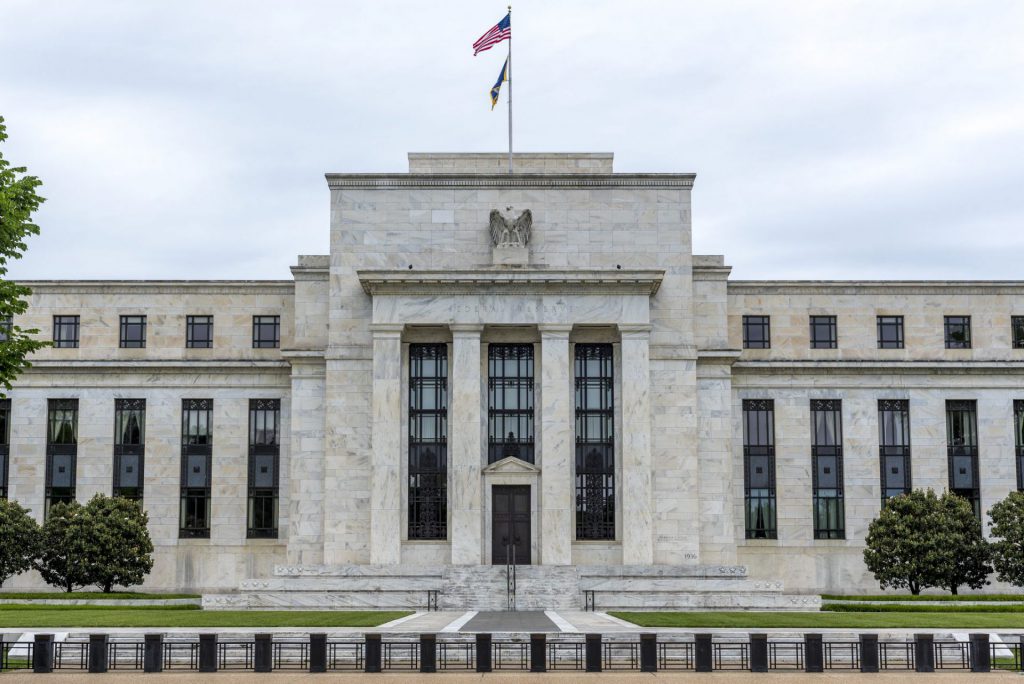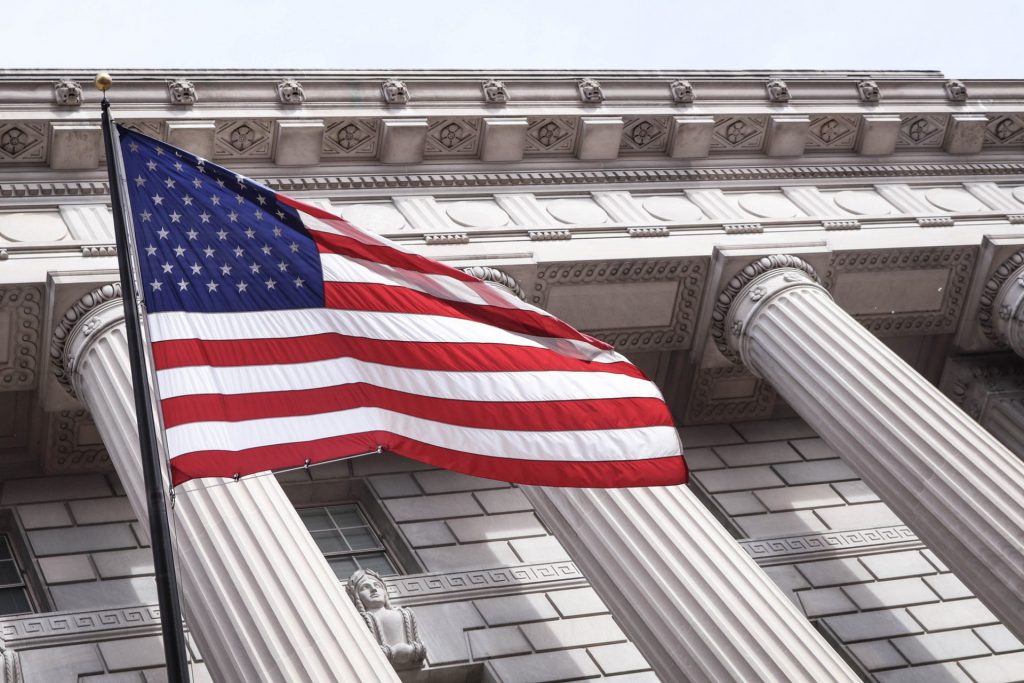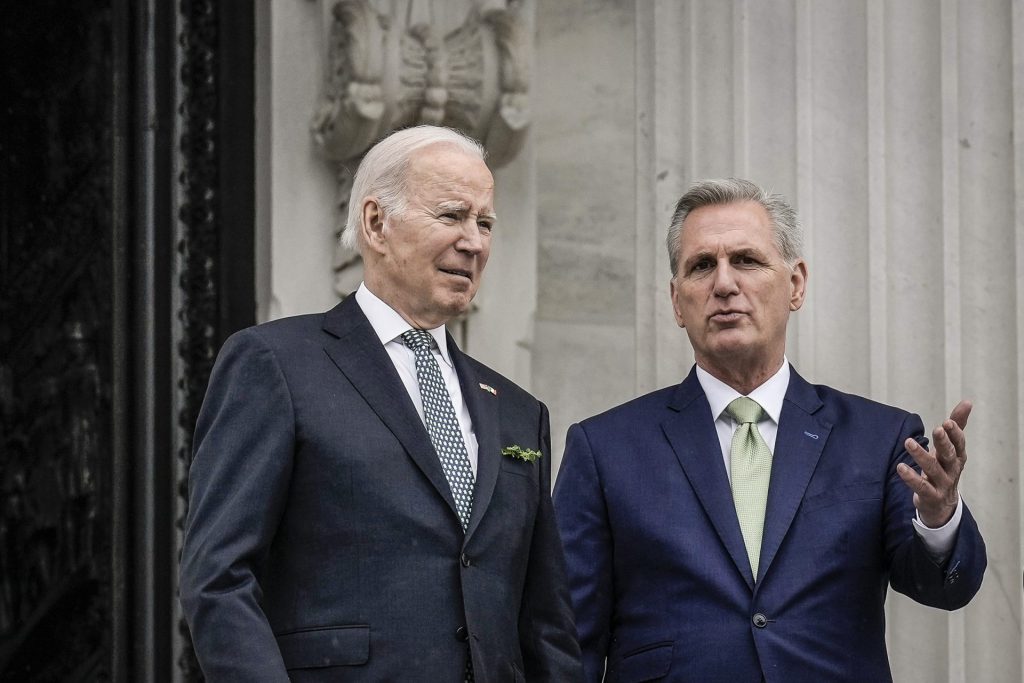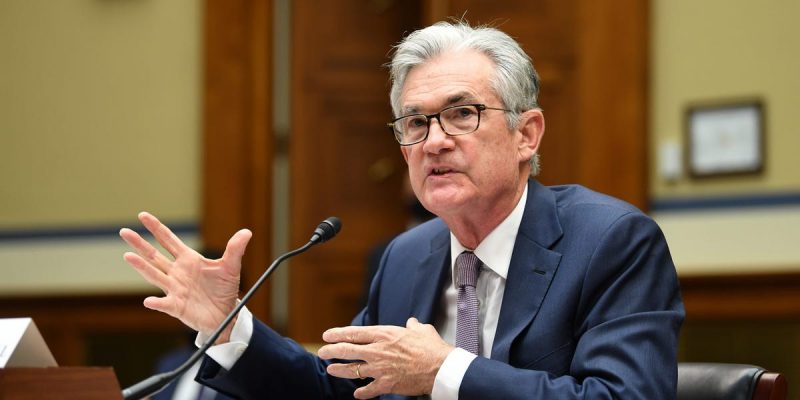Following the Federal Reserve’s decision to increase interest rates by another 25 basis points, Fed Chair Jerome Powell answered reporters’ questions. Moreover, Powell discussed a host of topics, from a potential recession to uncertainty in the banking sector, at the FOMC Meeting in May 2023.
The appearance provided an opportunity for Powell to address the decision and discuss some concerns regarding the consecutive hikes. Additionally, Powell noted the ongoing banking crisis that exists in the sector and whether or not the Fed took the development into account amidst its fight against inflation.
Powell Says Banking System is Sound
To begin his comments, Powell first addressed the proverbial elephant in the room: the banking sector. Subsequently, Powell referred to the industry as “sound and resilient.” While remarking that “conditions in that sector have broadly improved since early March.”
Additionally, Powell noted that continued monitoring of the situation is vital. Nevertheless, stating that the Silicon Valley Bank review displayed “the need to address our rules and supervisory practices to make for a stronger and more resilient banking system.”
Conversely, Powell assured that the banking sector did not massively factor into the current inflation fight. He stated the Fed “remains strongly committed to bringing inflation back down to our 2% goal.”
Powell Notes a Possible “Mild Recession”


Among the most important discussion points at the FOMC meeting in May 2023 was a potential recession. Specifically, Powell states that the Fed forecasts” a mild recession,” amid the current economic climate.
Moreover, Powell noted the scale of the recessionary state he predicts. He stated, “By that, I would characterize it as one in which the rise in unemployment is smaller than has been typical in modern recessions.”
Alternatively, Powell still maintained his belief in the economy’s ability to avoid that outcome. Subsequently, he stated, “The case of avoiding a recession is, in my view, more likely than that of having a recession.” Additionally, noting that he doesn’t “rule out either. It’s possible that we will have what I hope will be a mild recession.”
Rate Cuts Won’t Happen if Inflation Stays High


Powell also discussed the fight against inflation, and why interest rate cuts won’t be sacrificed because of that conflict. Moreover, Powell noted that the progress made by the committee has made it beneficial to continue their current stand to continue the inflationary fight.
“We on the committee have a view that inflation is going to come down, but not so quickly. It will take some time. And in that world, if that forecast is broadly right, it would not be appropriate to cut rates.” Subsequently, Powell succinctly stated, “We won’t cut rates.”
The Fed Chair stated that potential rate cuts would be considered only “if you have a different forecast,” and markets were operating differently. Consequently, informing the Fed’s perspective that rate cuts wouldn’t be appropriate in the current market.
“Highly Uncertain” Consequences if a Debt Deal Isnt Reached


Conversely, Powell discussed the national debt ceiling and the catastrophic consequences of a potential default. Specifically, Powell stated, “I would just say this: it’s essential that the debt ceiling be raised in a timely way so that the US government can pay all of its bills when they are due.”
Powell added, “A failure to do that would be unprecedented.” Additionally, noting that “uncharted territory” without a debt deal While noting that “consequences to the US economy could be highly uncertain and could be quite averse.”
Conclusively, Powell states that the Fed refuses to “give advice to either side.” However, he noted that the stance of the committee is that “it’s very important that this be done.” Thus, echoing similar sentiments stated by economists regarding the ongoing national debt debate.





